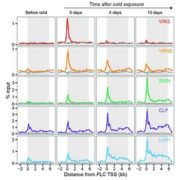
Stages of silencing to hold epigenetic memory
Blog, Plant Science Research Weekly, Research, Research BlogThe gene FLC (FLOWERING LOCUS C) is a repressor of flowering in Arabidopsis thaliana. It needs to be silenced after exposure to prolonged cold for plants to be able to flower. The memory of winter leads to changes in the methylation state of Histone 3 associated with FLC in two steps: first by recruiting…

Connecting Employers and Employees - September 19, 2017
Blog, Careers, Careers - Blog
ASPB and Plantae have already set a tone of collaboration and constant improvement by and for plant scientists. In keeping with our commitment to providing the best recruitment resources for our members, we are excited to announce the launch of our new and expanded online employment resource: the…

Advice for those selecting a PhD program
Careers, Careers - Blog, Finding Your Next Position, Graduate Students, Undergraduate StudentsChoose a program, have a life
By Samantha H. Jones (Published in Science)
As I formally accepted the offer to join my Ph.D. program, the massive weight on my chest began to dissolve, my shoulders relaxed, and my headache subsided. Choosing a program had been quite the roller coaster ride,…
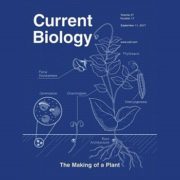
Special Issue of Current Biology "The Making of a Plant"
Blog, Plant Science Research Weekly, Research, Research BlogBrowsing the table of contents of the “The Making of a Plant” special issue of Current Biology feels like a birthday celebration; there are so many exciting goodies it’s hard to know which to open first. The issue consists of well-written and well-illustrated short reviews (and Quick Guides and…

Review: Mechanosensitive ion channels ($)
Blog, Plant Science Research Weekly, Research, Research BlogIon channels are proteins that regulate the passage of ions across membranes. Ion channels are regulated in diverse ways – some are calcium-regulated, some are pH sensitive, some are charge sensitive, and some are sensitive to mechanical stimulation i.e., membrane tension. Basu and Haswell review mechanosensitive…
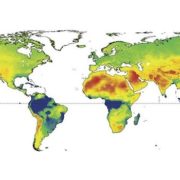
A worldwide-scale relationship between leaf size and climate ($)
Blog, Plant Science Research Weekly, Research, Research BlogLeaf size varies by over 100,000-fold across the plant kingdom. Leaf area has a direct impact on tissue temperature and thus directly affects photosynthetic efficiency. Empirical observations by 19th century plant geographers described that larger leaves are usually restricted to plants growing in wet…
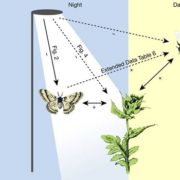
Artificial light at night as a new threat to pollination ($)
Blog, Plant Science Research Weekly, Research, Research BlogDuring our holidays, many of us plant scientists love to go to re-energize in remote places, ideally with no technology. Have you ever imagined how our “advanced” way of living is changing our environment? In a recent paper, Knop et al. show evidence that nocturnal pollinators are negatively affected…
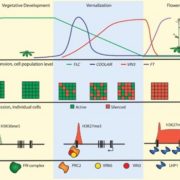
Review. Fine-tuning timing: Natural variation informs the switch to flowering in Arabidopsis thaliana ($)
Blog, Plant Science Research Weekly, Research, Research BlogThe transition from vegetative growth to a flower-producing reproductive state is highly regulated by environmental cues. The model plant Arabidopsis thaliana has a wide distribution throughout different habitats, so each accession has different adaptations strategies. One of the major factors that varies…
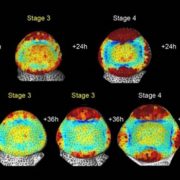
Seasonal regulation of petal number in Cardamine hirsute
Blog, Plant Science Research Weekly, Research, Research BlogFlower development, unlike flowering timing, is a robust process not much affected by seasonal variation, such that the number of floral organs in each flower can be predicted quite precisely for different plant families. Most Brasiccaceae family species have flowers with fours petals, however, Cardamine…

